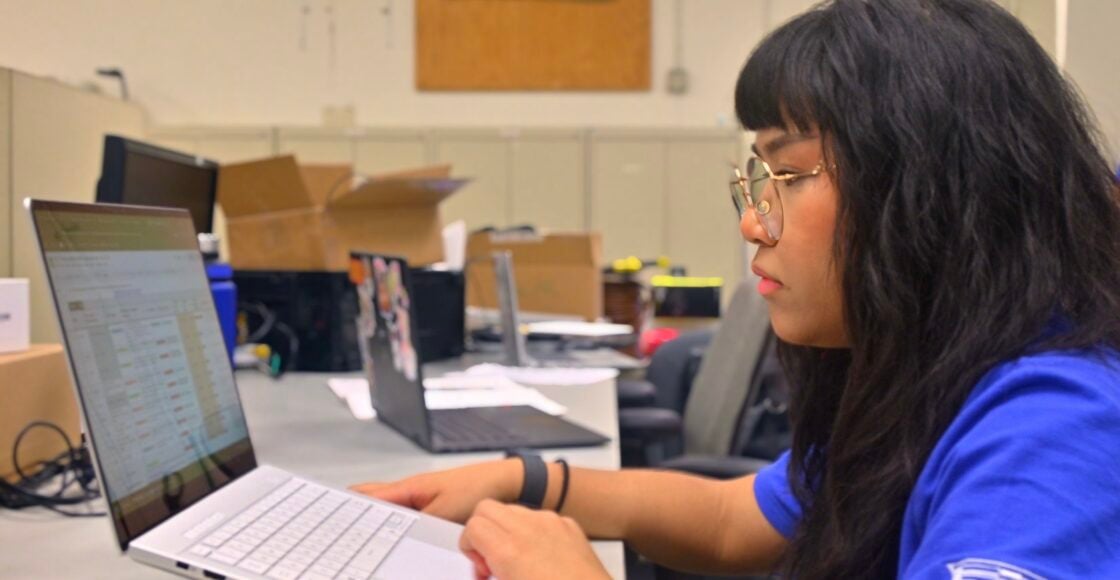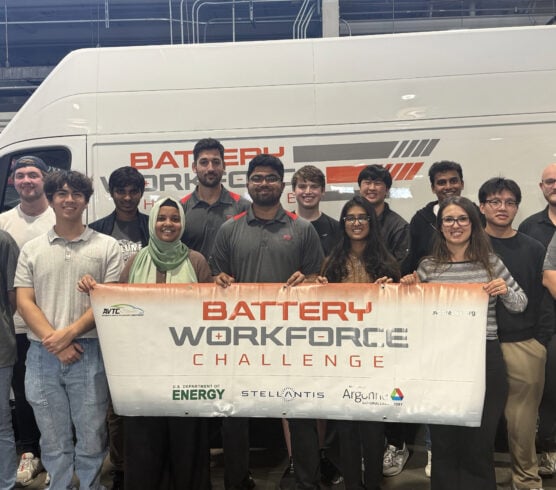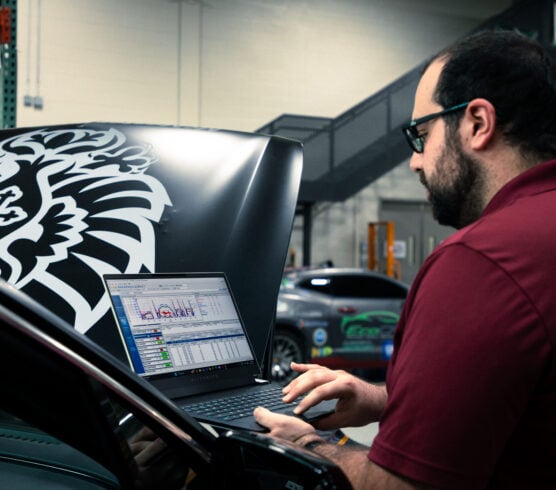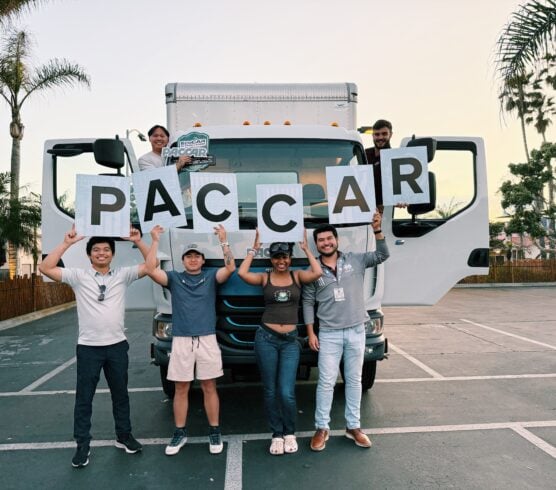Written by: Semaria Kebede UC Riverside EcoCAR Communications Manager
As part of the four-year EcoCAR EV Challenge, the UC Riverside EcoCAR team reached a defining milestone in vehicle systems integration as the System Design and Integration (SDI) subteam finalized its Vehicle Testing Matrix (VTM) and Vehicle Test Plan (VTP), critical frameworks that guide every step of testing for the team’s re-engineered 2023 Cadillac LYRIQ.
These tools are the backbone of the UC Riverside EcoCAR team validation process, ensuring every mechanical, electrical, and software subsystem is tested to competition standards before vehicle-level integration. “The Vehicle Testing Matrix acts as a structured roadmap that links each test to a specific subsystem, design requirement, and validation objective,” explained May Tambo, SDI Lead. “By organizing tests across these domains, we ensure that no integration pathway is overlooked.”
Engineering Precision Through Collaboration
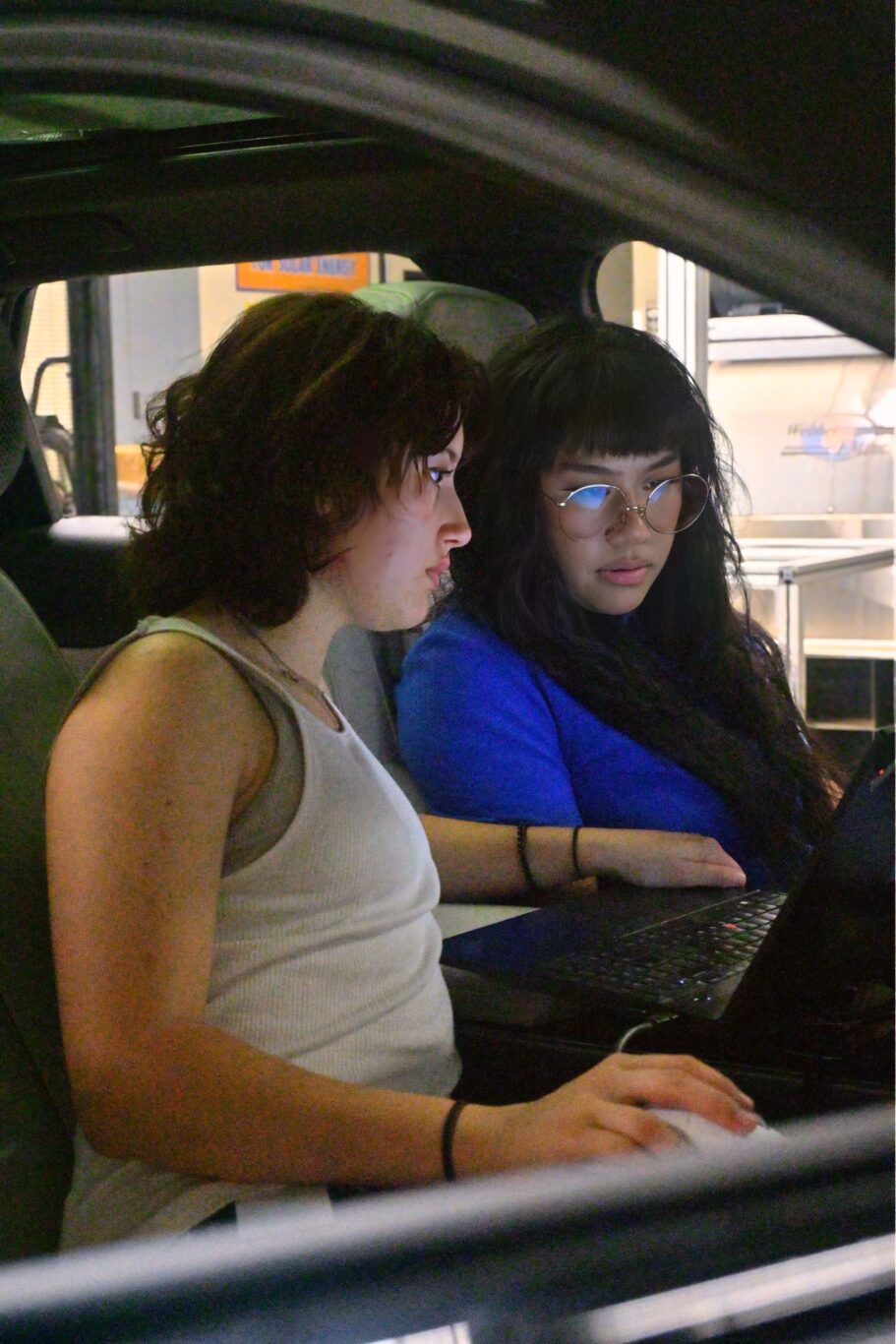
The SDI subteam’s Year 4 focus includes developing and validating the rear subframe and EDU mounting system, as well as refining high-voltage protection and thermal management components. Each test is prioritized by risk level, safety implication, and competition scoring weight.
“For competition performance, we start with driver and high-voltage safety,” said Tambo. “Once those are verified, we move to performance-critical testing like torque response, braking validation, and cooling efficiency. From there, we refine comfort and functionality metrics using AVL Drive and NVH analysis.”
SDI’s collaboration with other technical subteams is key. Using ClickUp for task management, the group coordinates test planning and data collection with the Propulsion Controls and Modeling (PCM) and Connected and Automated Vehicle (CAV) teams. SDI defines the physical test setups, sensors, mounts, and interfaces, while PCM handles calibrations and CAV manages automation logic.
“Before any test, all subsystems are reviewed to ensure synchronization,” Tambo explained. “Real-time feedback flows through dSPACE and MATLAB dashboards, and after testing, we debrief as a team to align data interpretation and next steps.”
Safety and Learning at Every Step
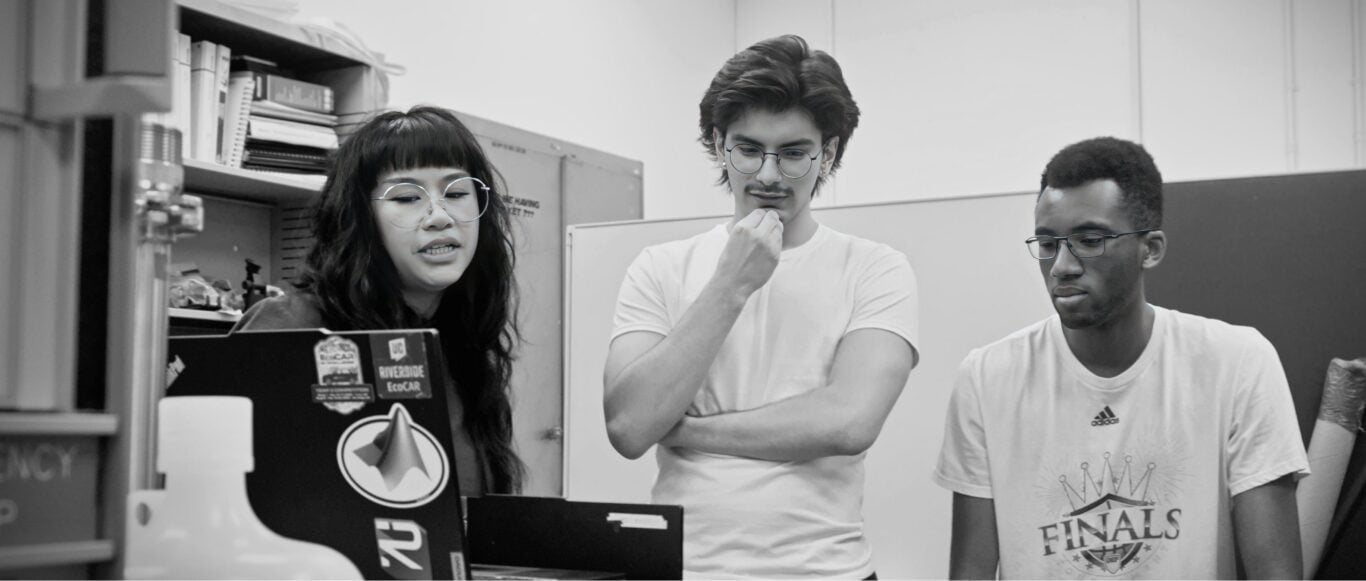
Safety remains SDI’s top priority. Each test begins with pre-inspections, team briefings, and designated safety personnel, making sure all members meet training requirements before entering high-voltage or dynamometer zones. “Everyone understands the test plan in advance,” Tambo said. “We make sure the environment, tools, and people are all prepared before a single data point is collected.”
Beyond technical execution, the process prepares students for careers in advanced mobility. “EcoCAR has implemented more industrial-level processes this year,” Tambo added. “Students gain real experience in test methodologies, data acquisition, and cross-team collaboration, skills that translate directly into the automotive industry.”
The UCR Edge: Grit and Growth
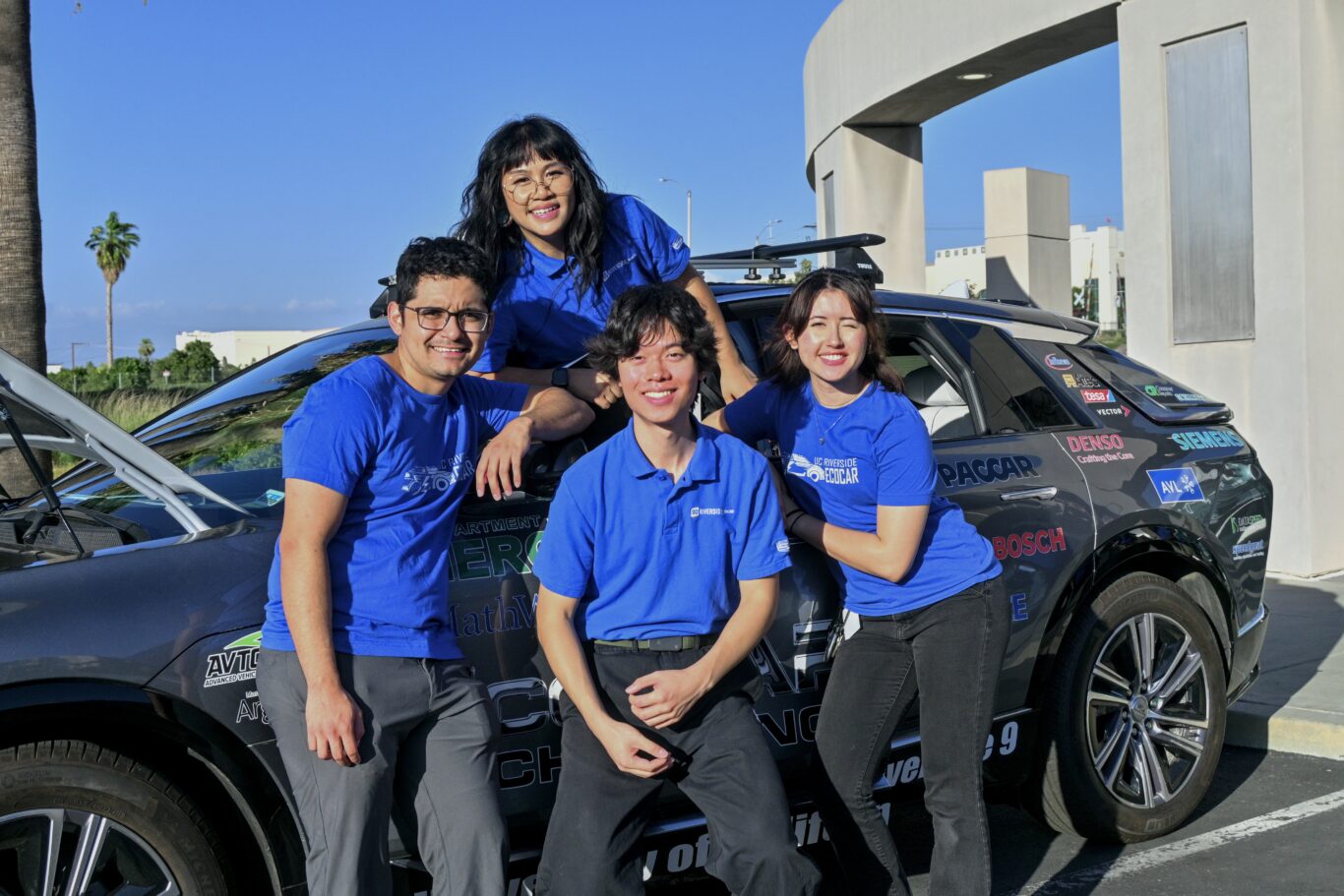
As a first-time participant in the EcoCAR EV Challenge, UC Riverside’s SDI team is driven by determination and teamwork. “It’s been a challenge,” reflected Tambo, “but our grit and willingness to learn make us different. Every day feels overwhelming, but everyone continues to push forward.”
That shared determination defines the SDI team’s identity at the Center for Environmental Research and Technology (CE-CERT), where every challenge has become part of their learning curve.
The team’s VTM and VTP represent more than technical progress. They capture the persistence, collaboration, and growth that have carried UC Riverside throughout the competition. This is proof that precision, safety, and teamwork remain at the heart of innovation.
Follow the UC Riverside EcoCAR team’s journey at CE-CERT as they continue testing, learning, and shaping the future of electric mobility. Stay connected through UC Riverside EcoCAR on Instagram and LinkedIn for upcoming vehicle validation milestones.
